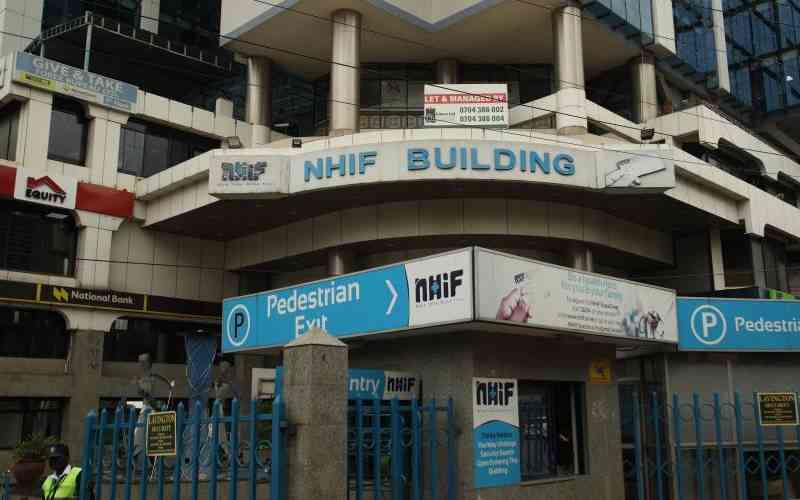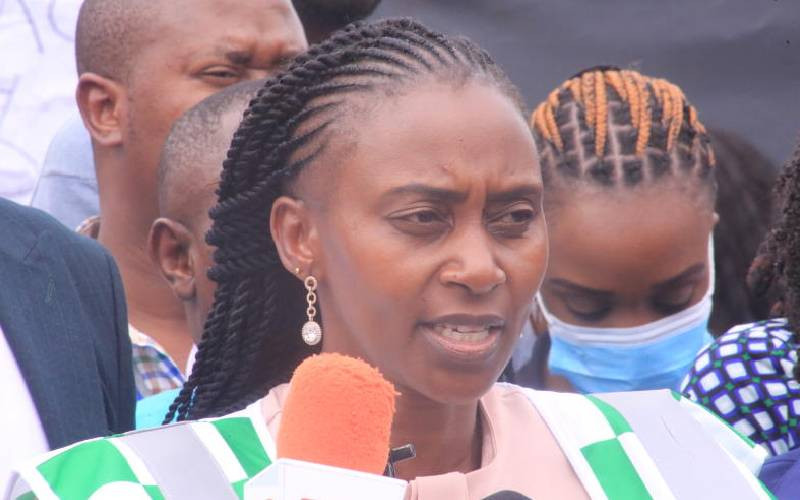The National Hospital Insurance Fund (NHIF) will from January go paperless in an ambitious plan to cut down on fraudulent claims that have cost it millions of shillings.
Once implemented, contributors to the the Fund will be expected to receive claims faster.
A pilot project of 180 health centres was completed in June and the fund plans to roll it out countrywide.
NHIF staff have for the last six months been undergoing ICT training to ensure the project goes seamlessly, with more than 3,200 of the 5,000 hospitals accredited by the fund fitted with biometric kits.
Over the years, manual filing and claiming has left the insurer exposed to fraud, with insiders often working with unscrupulous individuals to siphon funds.
Several investigation agencies are currently looking into possible fraud within the country’s largest health insurer.
The e-claims is just one of the solutions put forth in the report to try and curb leakages from the insurer. NHIF boasts of seven million contributors, with an annual contribution of some Sh25 billion.
It also has enhanced benefits for ailments such as cancer and kidney dialysis after raising the amount that workers contribute to the fund.
In 2015, allegations of fraud compelled the fund to adopt the use of fingerprints to identify its members.
But, even as it seeks to improve its processes, a section of the public is still unable to reconcile what they contribute with what the insurer eventually pays out.
Contributors complain that the fund either delays or does not fully pay the hospital debts.
Paid out
In one of the instances, the parents of a patient who has been hospitalised for two years and has accumulated Sh23 million claimed that NHIF has only paid Sh600,000 of the cash despite that fact that they were both contributors.
In another instance, a guardian of a patient at Kenyatta National Hospital private wing complained that NHIF had not fully paid for the bill despite her and the husband being covered by the fund.
“The fund is telling us that they can only offset Sh800,000, we do not understand,” said Dennis Omwango.
Stay informed. Subscribe to our newsletter
The NHIF says healthcare providers are put in three categories that included government, mission and private and community and the contracts are signed in each.
Those under contract A have a comprehensive cover usable in government hospitals as well as other hospitals.
Those under contract B qualify for full cover but are subjected to co-paying in some instances.
Those under category C only qualify for basic admission. Any extra incurred costs are settled in cash. Under outpatient care, patients are covered for general consultation, diagnosis and treatment of ailments, laboratory services, inpatient care, radiology, among others.
In the national cover also, there is renal dialysis and kidney transplant package where services are provided in designated facilities locally and abroad.
 The Standard Group Plc is a
multi-media organization with investments in media platforms spanning newspaper
print operations, television, radio broadcasting, digital and online services. The
Standard Group is recognized as a leading multi-media house in Kenya with a key
influence in matters of national and international interest.
The Standard Group Plc is a
multi-media organization with investments in media platforms spanning newspaper
print operations, television, radio broadcasting, digital and online services. The
Standard Group is recognized as a leading multi-media house in Kenya with a key
influence in matters of national and international interest.
 The Standard Group Plc is a
multi-media organization with investments in media platforms spanning newspaper
print operations, television, radio broadcasting, digital and online services. The
Standard Group is recognized as a leading multi-media house in Kenya with a key
influence in matters of national and international interest.
The Standard Group Plc is a
multi-media organization with investments in media platforms spanning newspaper
print operations, television, radio broadcasting, digital and online services. The
Standard Group is recognized as a leading multi-media house in Kenya with a key
influence in matters of national and international interest.








